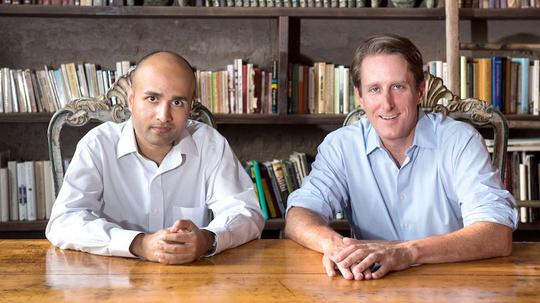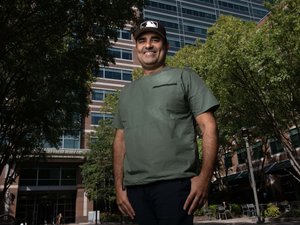
Groundfloor, the Atlanta-based crowdfunding marketplace that connects both accredited and non-accredited investors to real estate opportunities, has been innovating ways in which entrepreneurs gain access to capital since its inception in 2013.
So it's only natural that, for its next round of financing, the company would try something new itself.
Following a successful national rollout of its product at the beginning of the year, the company closed a $2.05 million debt offering, per an SEC filing, in early January. The capital is positioned as bridge financing to prepare for the company's next round of funding, which - in keeping with its own platform's innovative approach to fundraising - will be through an online public offering, according to Brian Dally, CEO of Groundfloor.
Groundfloor's last official round, in 2015, was a $5 million Series A from VC firm Fintech Ventures, which brought its total funding to $7.6 million. Yet, for the company's upcoming Series B, with the business growing, Dally began thinking about going in a different direction, one that mirrored its model.
"We decided to go to our customers," Dally said.
"We decided to go to our customers."
As a quick refresher - an online public offering allows entrepreneurs to raise capital by setting their own terms, including deciding the number of shares they want to sell and the minimum price for a single share. On Tuesday, February 21st, the company officially announced its online public offering, revealing that it has already raised a total of $4.3 million from 687 participating investors.
"If you stop and think about what our company stands for, [raising money from customers] would make perfect sense to you," Dally said.
Around six years ago, Dally and Groundfloor co-founder Nick Bhargava started asking themselves how they could possibly change the way entrepreneurs raised funding. In their search for alternatives to banks, VCs and private equity, they wondered what might happen if individuals could participate in the private financing process directly. The pursuit of this solution evolved into Groundfloor, a 28-employee company that serves both entrepreneurs and individual investors by allowing them to access new investment opportunities and backing them with real estate.
"We set off to make our financial system look like the Internet itself," Dally said. "We set out to create a decentralized capital market."
"We set out to create a decentralized capital market."
On the Groundfloor platform, you have investors - individuals looking for short-term, high-yield returns (as well as a way to diversify their portfolio) - and real estate entrepreneurs seeking the funds to buy, renovate and flip a property. What's unique about Groundfloor is that its minimum investment is just $10, drastically lowering the barrier-to-entry for real estate investment and leveling the playing field for the industry.
Also, by lending money for a limited amount of time (eight months on average), investors have generated returns between 8 and 12% on an annual basis, according to Dally. Real estate entrepreneurs, on the other hand, benefit by gaining access to capital more quickly and easier than if they went through VC and traditional investors. As for Groundfloor, the company makes money from the fees it charges entrepreneurs to access the loans, typically between 2 and 4% of the loan amount.
Since 2014, the company has made over 400 loans to around 250 entrepreneurs, with over 300 individual investors providing loans. Originally started in Raleigh, North Carolina, Groundfloor moved to Atlanta to take advantage of the Invest Georgia Exemption, which allows small businesses to raise up to $5 million from individual investors who live in Georgia with a minimum amount of paperwork.
"Moving to Georgia was a pretty easy decision for us, especially with Atlanta being the fintech ecosystem that it is."
"At that time, Georgia was one of only two states in the country [with Kansas] that had a law like this," Dally said. "Moving to Georgia was a pretty easy decision for us, especially with Atlanta being the fintech ecosystem that it is."








